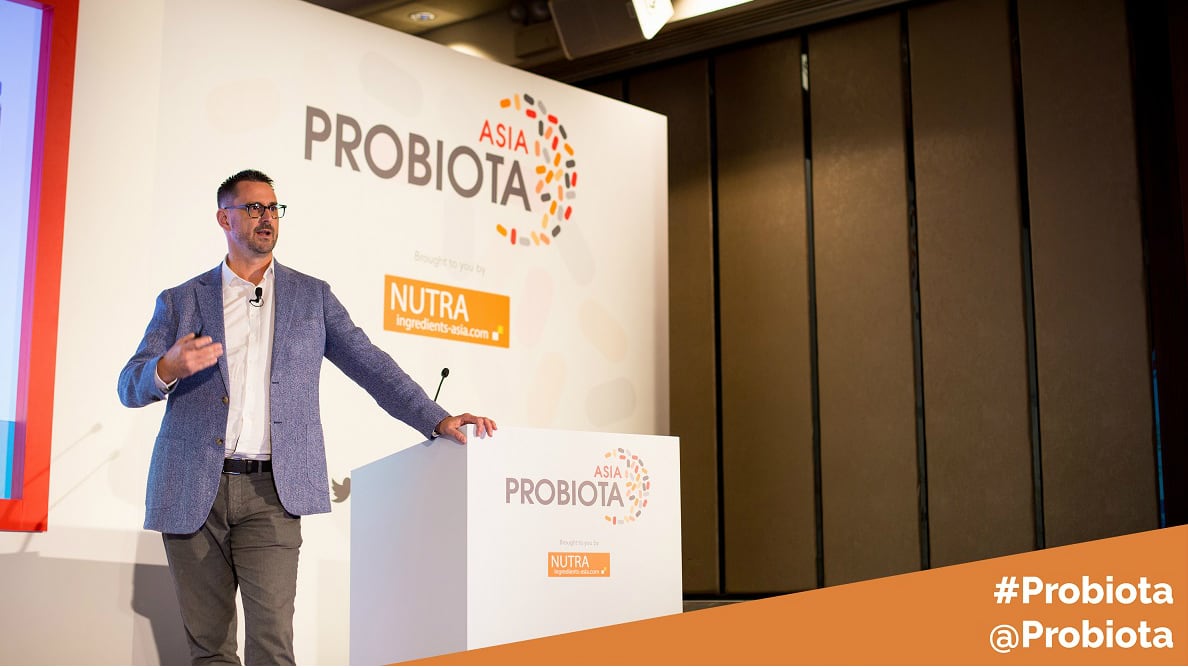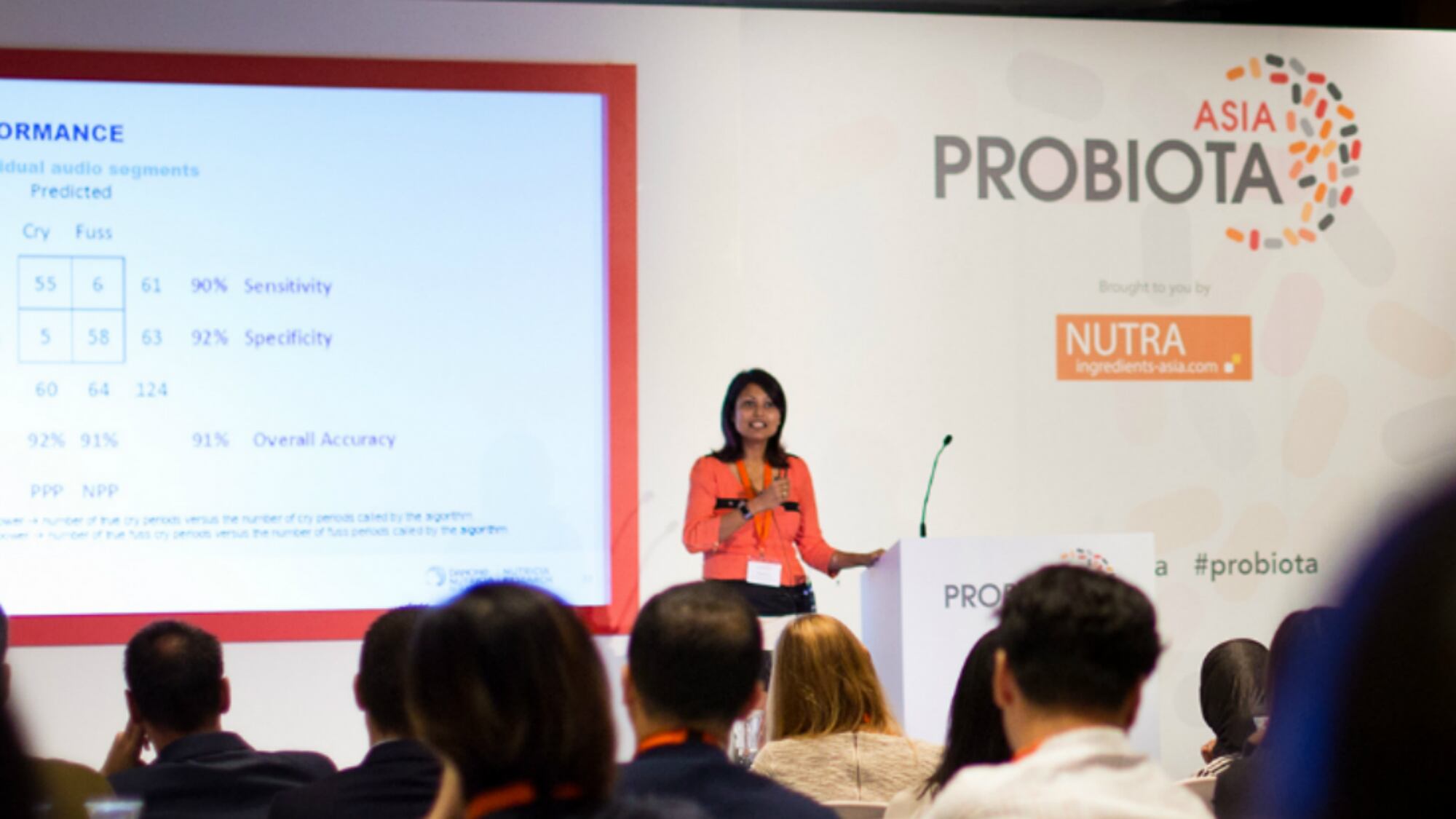Speaking at Probiota Asia 2018, Dr Qin Xiang Ng from the Yong Loo Lin School of Medicine, National University of Singapore, highlighted the findings of his recent study, ‘A meta-analysis of the use of probiotics to alleviate depressive symptoms’.
Dr Ng stressed that a significant benefit was observed in the effect of probiotics on patients with more severe depressive scores.
The study reviewed 10 randomised, controlled trials comprising 1349 patients, and compared probiotic use to placebo controls.
“In humans, no significant effect was observed in mood between the treatment and placebo groups,” he said.
“However, when we went a step further and compared studies conducted on individuals with mild-to-moderate depressive symptoms vs those with healthy, very low-baseline depressive scores, we found a significant effect on the former.
“This could be due to the generally good baseline mood of the individuals [in the second group], meaning benefits could be more likely to be demonstrated when there is more room for improvement.”
Additionally, Dr Ng added that probiotics were generally well-tolerated by all patients in the study with no adverse side effects, unlike traditional antidepressant medications.
The gut-brain axis: How gut health could affect mood
Citing current knowledge about the gut-brain axis, Dr Ng said: “Bidirectional gut-brain interactions help to regulate many things in our body, including homeostasis, immune responses and inflammation.”
“There are approximately 100 trillion microorganisms in the human gastrointestinal tract. […] The gut microbiota has a broad spectrum of functions, […] and may also influence brain function via the metabolites they produce.
“For example, some metabolites can promote serotonin production. This is intriguing, because some of our best modern anti-depressants also work by promoting serotonin at the junctions between neurons.”
Dr Ng also highlighted the likelihood of a cause-and-effect relationship between gut health and mood states.
“Research has found that germ-free mice have less serotonin, the levels of which can be improved by introducing [bacteria] to their guts. Conversely, mice with natural microbiota have reduced serotonin production when given antibiotics, exhibiting more anxious behaviours.”
How do probiotics affect depression?
He also looked at the various possible mechanisms by which probiotics could possibly affect depressive symptoms.
One of these is via the promotion of healthy gut bacteria, which probiotics is known to positively affect, because ‘[the] gut flora of depressed patients tends to comprise a higher proportion of pathogenic, gram-negative bacteria than healthy patients’, according to Dr Ng.
“Also, [the] administration of probiotics has been seen to lead to a downregulation of the hypothalamic pituitary adrenal (HPA) axis, the central stress response system thought to be overactive in depression.”
“Probiotic administration also boosts the levels of serotonin and GABA, a neurotransmitter that is known to decrease in cases of depression.”
Caution urged in developing a treatment using probiotics
When it comes to developing possible treatments for depression using probiotics, Dr Ng urged caution.
He refuted the idea that probiotics are a panacea for all diseases in terms of treatment or prevention, calling this a ‘dangerous’ way of thinking.
“Current research has only been conducted in animal models, so it remains unclear whether altered serotonin levels in the gut can trigger a similar cascade of events that affects brain activity in humans,” he said.
“Moving forward, newer technology like metabolomics, which can do real-time analysis of metabolites, can help to answer [some of the current gaps in knowledge].”
He also urged researchers moving forward to make ‘every effort […] to report specific probiotic strains or mixture of strains when analysing the efficacy and safety of probiotics’.
“[This is because] the clinical choice of probiotic for each patient is challenging and requires careful consideration of the type of probiotic strain as well as disease that is being dealt with.”
Dr Ng also cited a 2016 study conducted on Spanish undergraduates which found that the consumption of low-fat yoghurt associated with higher incidence of depression, whilst the opposite was true for full-fat yoghurt.
“This highlights some of the current gaps in our knowledge.
“Bacterial concentrations of both yoghurts were comparable, so the current probiotic hypothesis cannot fully explain this contrasting association.”
“Perhaps probiotics requires a suitable substrate or prebiotic to function. […] Further study is definitely required.”





